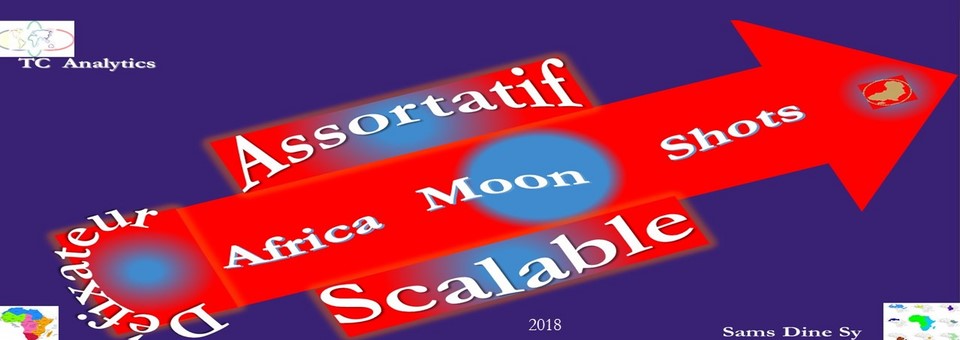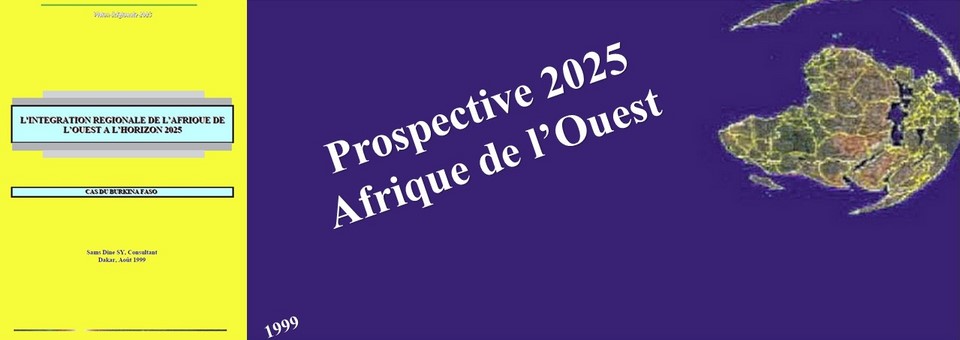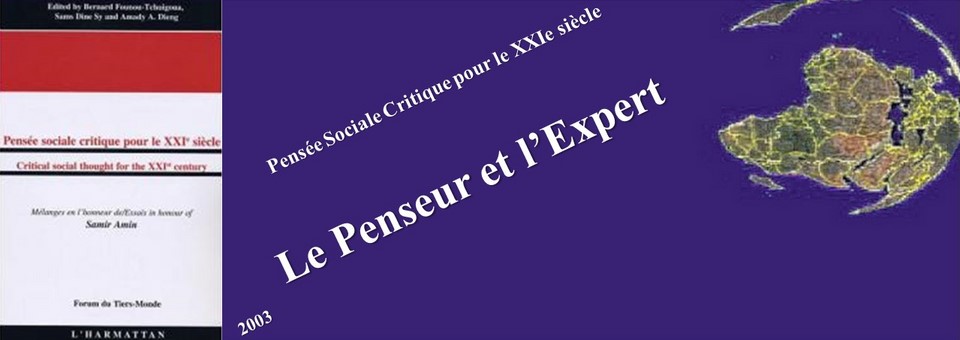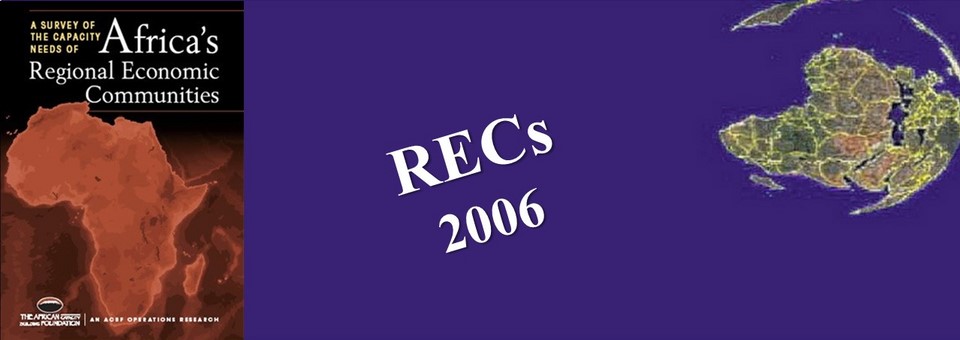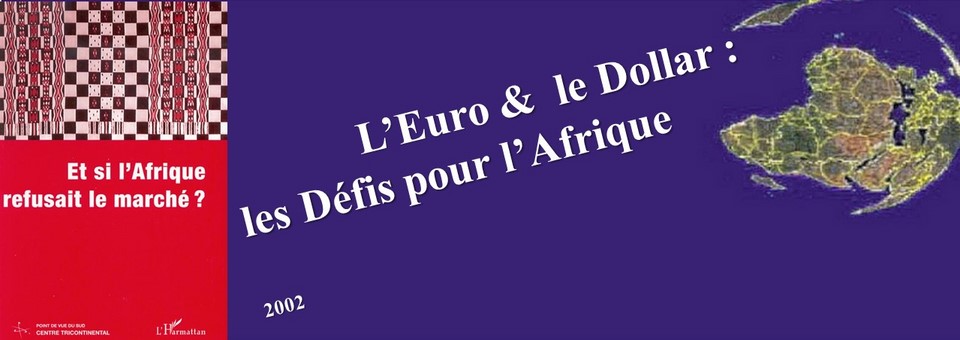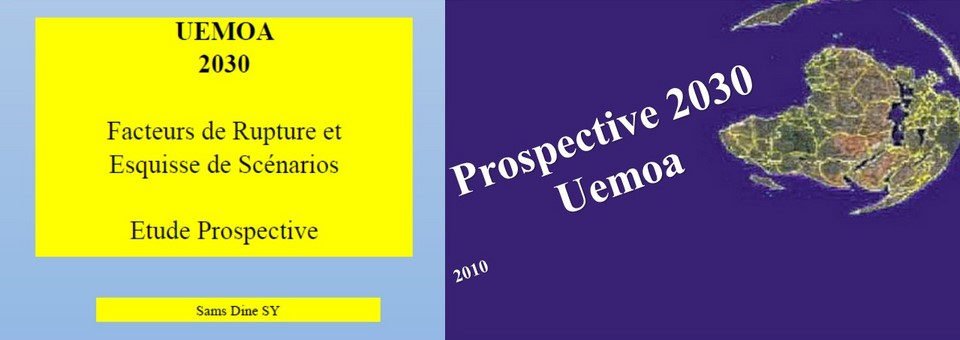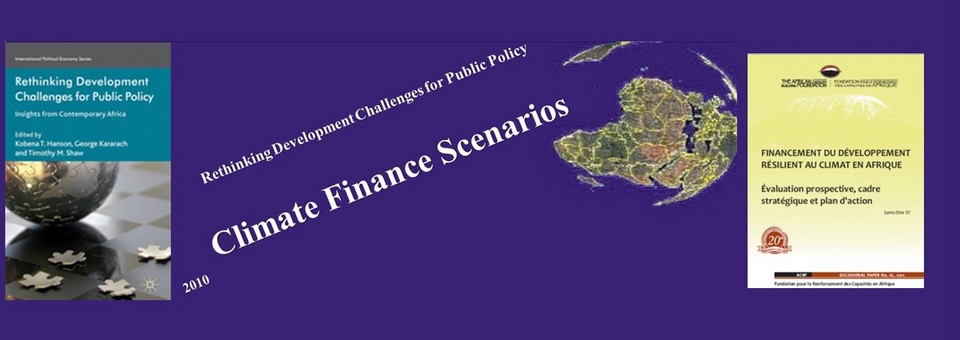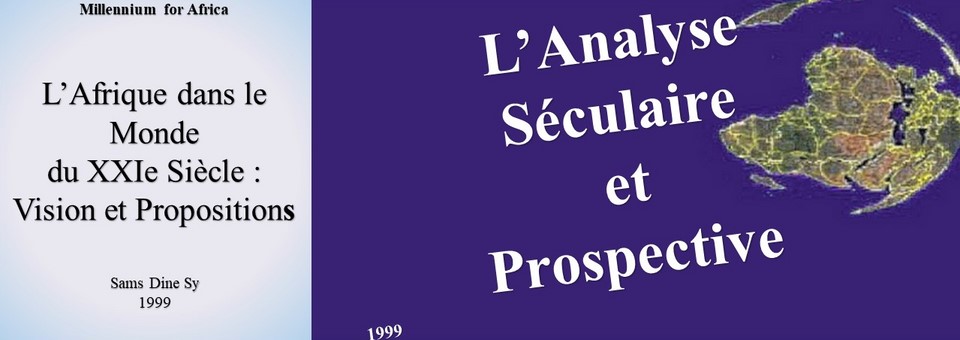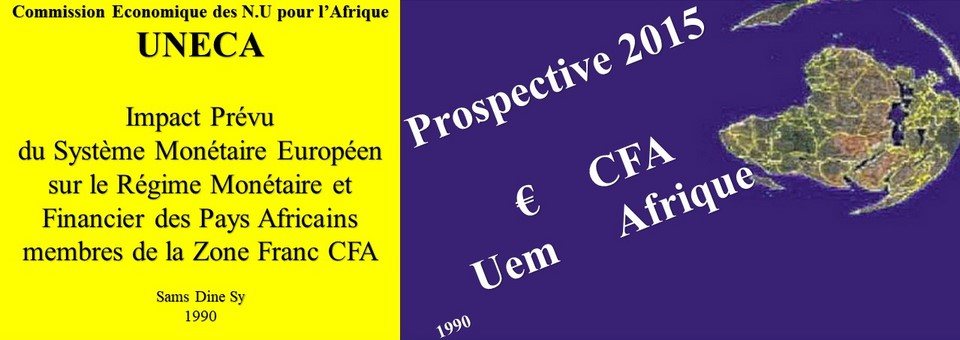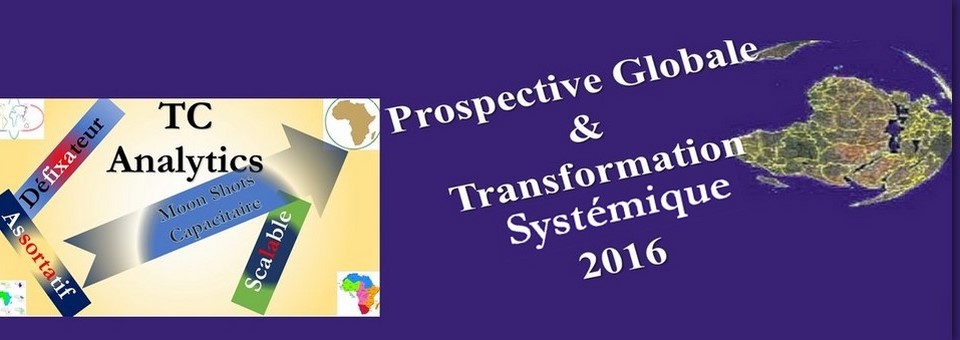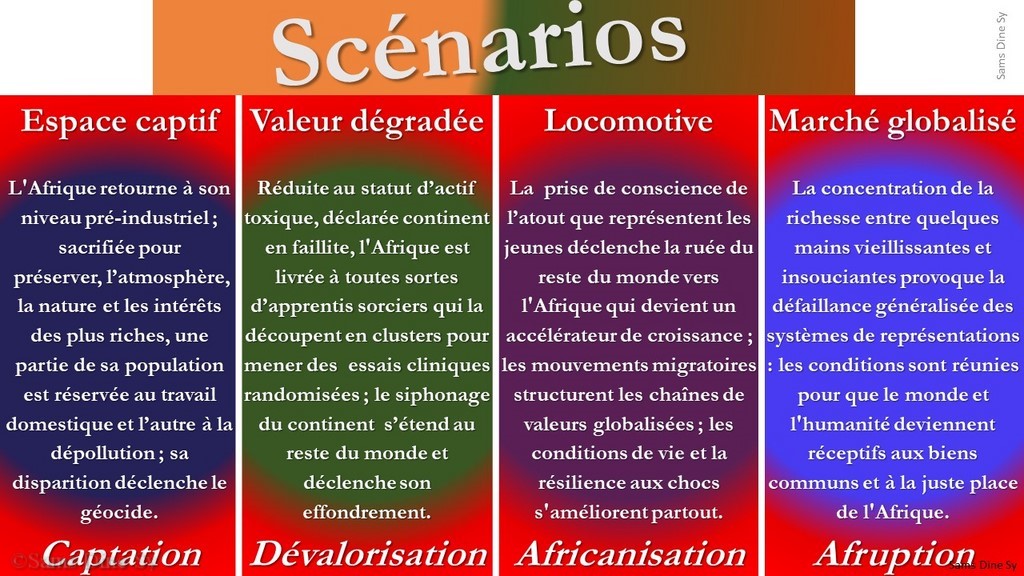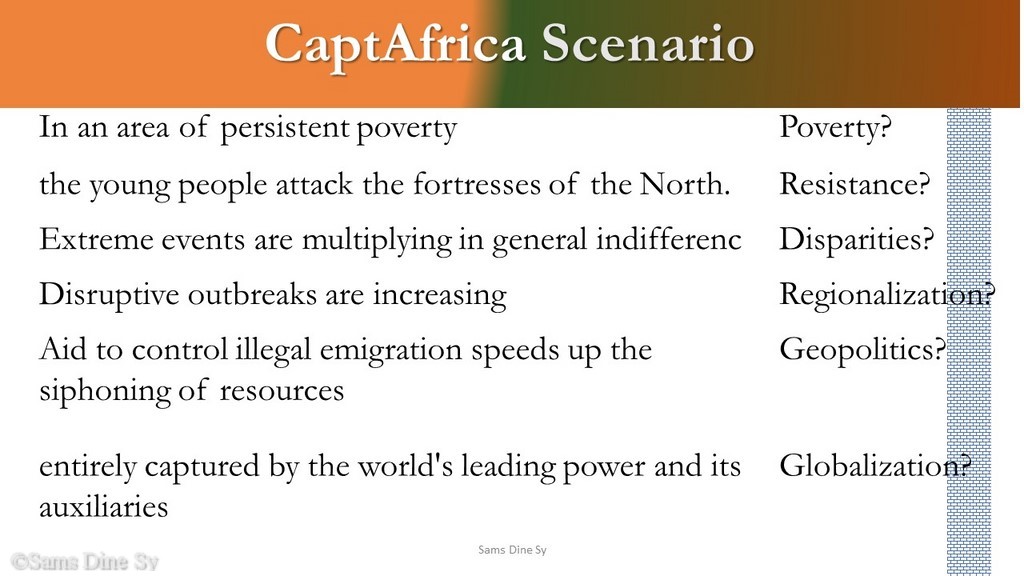Global ForesightGlobal Scenarios
Four Scenarios
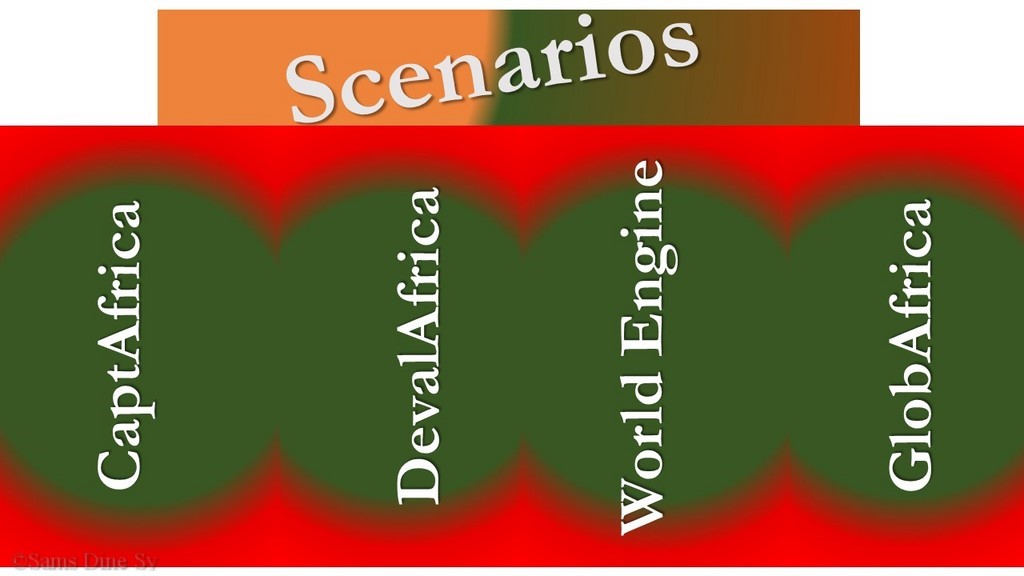
or the backdrop of Africa's Capacitary Transformation in the World of the 21st Century
1. Captured space
CaptAfrica
African Capture Scenario
Africa is returning to its pre-industrial level; sacrificed to preserve the atmosphere, nature and interests of the richest, part of its population is reserved for domestic work and the other part for pollution control; its disappearance triggers geocide.
Poverty is gaining ground despite efforts to harmonize reduction strategies. The general tendency is to trivialize the situation of the poor. Young people and women in rural areas are most at risk and their increased exposure to contagious diseases no longer moves any authority. Their number continues to grow due to the slackening of family planning activities.
The desert is gaining ground in landlocked areas, increasing migration to over-exploited coastal areas and subject to the inexorable advance of the sea. River basins are shrinking. Left to their own devices, the populations emigrate massively to the countries of Central Africa and Europe, before being repatriated as massively. Surplus populations from high-density countries are being dumped into neighbouring countries. Major Community infrastructure initiatives are being abandoned due to a lack of external funding and commitment from Member States. Existing infrastructure is deteriorating due to lack of maintenance.
Cooperation among African countries still remains at the declaration level. Each country actually seeks to export its poor outside its borders at the risk of triggering ethnic or religious conflicts over arable land. International mediations are running out of steam for lack of concrete projects to generate resources for the populations. Meanwhile the exploitation of raw materials and oil continues systematically. New oil discoveries in the arid zones and off the coast of Africa are reviving some countries that have lagged behind in past decades. Markets continue to be invaded by cheap Asian imports.
On the outskirts of large cities suffocating under the pressure of rural exodus and unemployment, groups of young people and women regularly erect barricades to demand means to take over the fortresses of developed countries. Frustrations are all the greater as the promises made on the occasion of new discoveries of energy resources remain without a future. Armed gangs and rebellions are organizing to demand a better sharing of resources.
After a period of instability and unrest, cooperation is regaining its rights and countries agree to better manage their common economic problems. Also the RECs that had gone through a long period of lethargy, largely due to disputes of precedence, are resuming their activities with a view to moving towards a free trade area. Regional integration is progressing faster in East and West Africa than in other regions.
Despite the crises of the 2000s that almost destabilized the world's leading economic power, it continues to set its pace to the evolution of the world through its ability to attract undeveloped resources elsewhere. A multipolar conception of the world is coming a long way. However, accusations of cynicism and duplicity make her ambivalent. We are witnessing withdrawal reactions around continental blocs while in other cases, the emergence of global economic poles is stimulated with a view to a sustainable regulation of capitalism. However, no catch-up effect is possible. In the hope of benefiting from some spinoffs, Africa deliberately directs its trade towards the United States, abandoning Europe to its problems which refocus it on itself. But the US involvement does not go beyond a few politicians and businessmen who serve as a buffer to access public aid.
The desert is gaining ground in landlocked areas, increasing migration to over-exploited coastal areas and subject to the inexorable advance of the sea. River basins are shrinking. Left to their own devices, the populations emigrate massively to the countries of Central Africa and Europe, before being repatriated as massively. Surplus populations from high-density countries are being dumped into neighbouring countries. Major Community infrastructure initiatives are being abandoned due to a lack of external funding and commitment from Member States. Existing infrastructure is deteriorating due to lack of maintenance.
Cooperation among African countries still remains at the declaration level. Each country actually seeks to export its poor outside its borders at the risk of triggering ethnic or religious conflicts over arable land. International mediations are running out of steam for lack of concrete projects to generate resources for the populations. Meanwhile the exploitation of raw materials and oil continues systematically. New oil discoveries in the arid zones and off the coast of Africa are reviving some countries that have lagged behind in past decades. Markets continue to be invaded by cheap Asian imports.
On the outskirts of large cities suffocating under the pressure of rural exodus and unemployment, groups of young people and women regularly erect barricades to demand means to take over the fortresses of developed countries. Frustrations are all the greater as the promises made on the occasion of new discoveries of energy resources remain without a future. Armed gangs and rebellions are organizing to demand a better sharing of resources.
After a period of instability and unrest, cooperation is regaining its rights and countries agree to better manage their common economic problems. Also the RECs that had gone through a long period of lethargy, largely due to disputes of precedence, are resuming their activities with a view to moving towards a free trade area. Regional integration is progressing faster in East and West Africa than in other regions.
Despite the crises of the 2000s that almost destabilized the world's leading economic power, it continues to set its pace to the evolution of the world through its ability to attract undeveloped resources elsewhere. A multipolar conception of the world is coming a long way. However, accusations of cynicism and duplicity make her ambivalent. We are witnessing withdrawal reactions around continental blocs while in other cases, the emergence of global economic poles is stimulated with a view to a sustainable regulation of capitalism. However, no catch-up effect is possible. In the hope of benefiting from some spinoffs, Africa deliberately directs its trade towards the United States, abandoning Europe to its problems which refocus it on itself. But the US involvement does not go beyond a few politicians and businessmen who serve as a buffer to access public aid.
2. Degraded Value
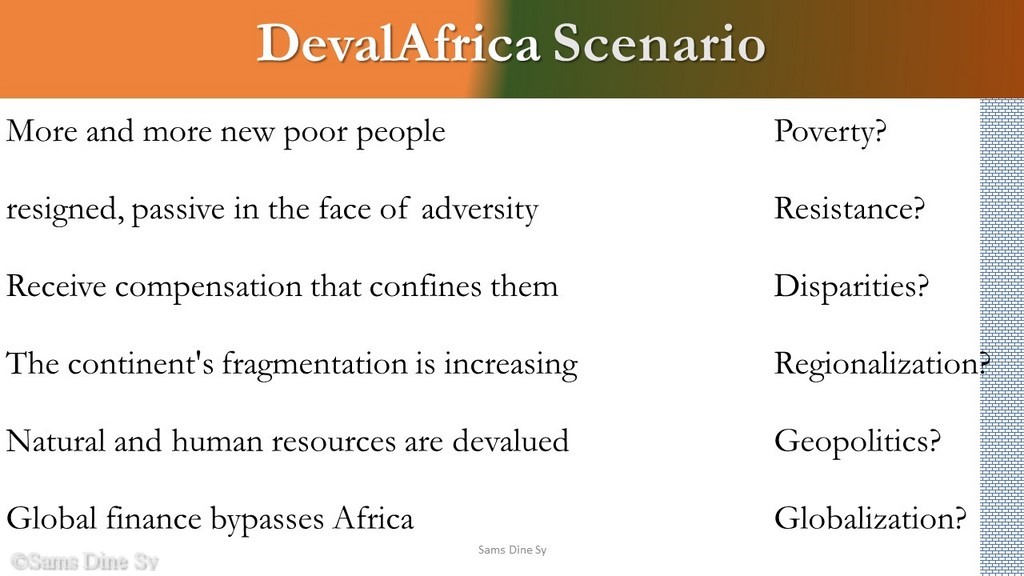
DevalAfrica
Africa Devalorization Scenario
Reduced to the status of toxic asset, declared a bankrupt continent, Africa is left to all kinds of sorcerer's apprentices who divide it into clusters to conduct randomized clinical trials; the continent's siphoning extends to the rest of the world and triggers its collapse.
Poverty levels are literally exploding and appearing in new aggravating forms in urban areas.
African countries are organizing on a bilateral basis to resolve land tenure disputes along borders.
Contrary to the great speeches that followed the great global and systemic crisis of before 2010, financial capitalism through the financial markets is taking back control of market activities. All activities and resources are systematically promoted. The protests of humanitarian NGOs are strongly relayed by social networks and the Internet but end up getting tired of defending the causes of countries reduced to the status of permanent assistance recipients. African populations are the great forgotten in this process of intensifying globalisation and are turning in on themselves. It is suffered as a fatality.
Faced with failed reforms, regional cooperation initiatives and declining external assistance, countries are tempted by protectionist measures and give priority to national policies. Land concessions became the main activity of the leaders under strong pressure from the major and medium powers to have rights of way in these countries. Regional Economic Communities vegetate when they are not dissolved.
Drawing lessons from the endemic conflicts of the 2000s, a group of countries is taking the initiative to jointly organize their security and economic stability by creating the conditions for a federation. It is also an opportunity for these countries to make considerable use of their common cultural heritage and ancestral principles of wisdom.
Financial innovations and the advanced sector of the digital economy are causing a rapid acceleration in trade in services, giving financial markets exorbitant power in asset allocation. The generalization of virtual money makes monetary policies and traditional forms of exchange management obsolete. But several regions of the world are excluded. Distant planets and virtual spaces are colonized, while others - such as desertified areas - are left fallow. The elites of these regions nevertheless manage to establish themselves in high-growth activities and to send funds to their relatives back home.
African countries are organizing on a bilateral basis to resolve land tenure disputes along borders.
Contrary to the great speeches that followed the great global and systemic crisis of before 2010, financial capitalism through the financial markets is taking back control of market activities. All activities and resources are systematically promoted. The protests of humanitarian NGOs are strongly relayed by social networks and the Internet but end up getting tired of defending the causes of countries reduced to the status of permanent assistance recipients. African populations are the great forgotten in this process of intensifying globalisation and are turning in on themselves. It is suffered as a fatality.
Faced with failed reforms, regional cooperation initiatives and declining external assistance, countries are tempted by protectionist measures and give priority to national policies. Land concessions became the main activity of the leaders under strong pressure from the major and medium powers to have rights of way in these countries. Regional Economic Communities vegetate when they are not dissolved.
Drawing lessons from the endemic conflicts of the 2000s, a group of countries is taking the initiative to jointly organize their security and economic stability by creating the conditions for a federation. It is also an opportunity for these countries to make considerable use of their common cultural heritage and ancestral principles of wisdom.
Financial innovations and the advanced sector of the digital economy are causing a rapid acceleration in trade in services, giving financial markets exorbitant power in asset allocation. The generalization of virtual money makes monetary policies and traditional forms of exchange management obsolete. But several regions of the world are excluded. Distant planets and virtual spaces are colonized, while others - such as desertified areas - are left fallow. The elites of these regions nevertheless manage to establish themselves in high-growth activities and to send funds to their relatives back home.
3. Worldwide Locomotive
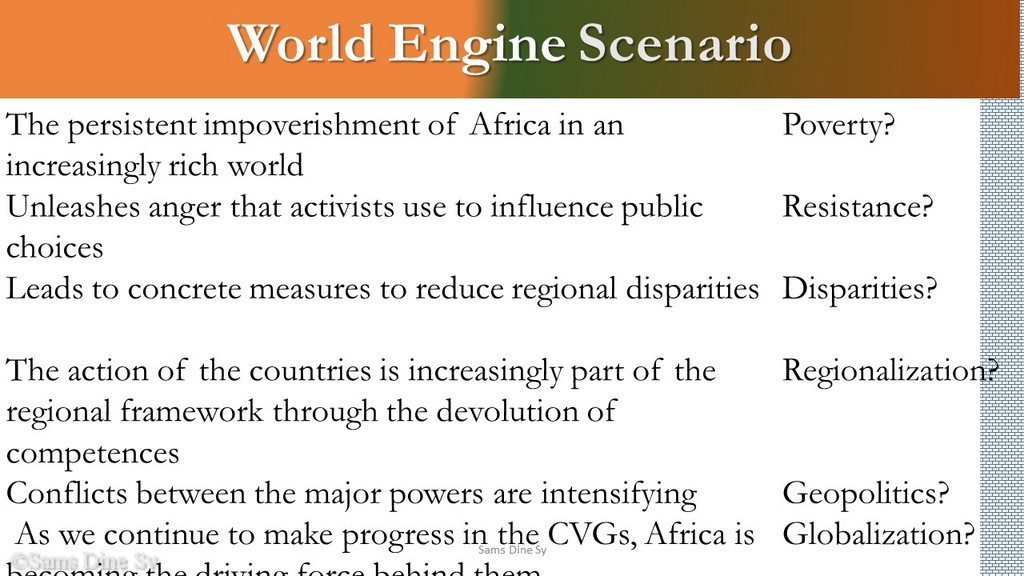
Africa World Engine
AfroDriver Scenario
The awareness of the asset of young people triggers the rest of the world's rush to Africa, which becomes a growth accelerator; migratory movements structure globalized value chains; living conditions and resilience to shocks are improving everywhere.
Against all expectations, poverty levels are significantly reduced in all countries. Pockets of impoverishment persist here and there, especially in areas isolated or left in the hands of rebel or terrorist groups. Concertation and exchanges of experience between countries are becoming systematic in order to improve the targeting of actions. All countries are making their demographic transition, which helps to contain the rate of growth of the poor linked only to new births. In this area, as in others, Africa is distinguished by the effectiveness of the strategic framework for poverty reduction adopted on a continental scale and by the establishment of rural infrastructure as close as possible to populated areas.The years 2010 had begun under the sign of strong mobilizations against interregional partnership agreements. The defensive nature of these agreements quickly became apparent to African civil societies, which were constantly mobilizing around the challenges of natural resources and commodities. Several national political systems have even suffered from their ambiguity or inability to defend their vital interests. The activists and alterglobalists of the 2000s were succeeded by a new generation of citizens who mastered the full potential of social networks to link the vast majority of the African population, both to launch watchwords and to facilitate commercial transactions. Africa is thus transformed into a cyber space relayed by the massive investments made by countries in the acquisition of powerful communication technologies and by the emergence of young and dynamic start-ups more sensitive to the conditions of populations.
Nature is also doing its part by giving a boost to an unexpected climate reversal, marked by more regular rainfall. In a few years, entire areas that were once dried out can be cultivated and developed on a regional scale. Incentives are given to people who return to the land to develop it. There is even a backflow from the cities to the countryside. Large coastal cities are experiencing a pause in their growth, which facilitates the setting up of large infrastructures dedicated to the transport of surplus products from the interior for export (railways and hubs). Africa's neighbouring regions also benefit.
After a period of uncertainty and misunderstanding, Africa normalizes its relations with neighbouring former colonial powers. These choices, dictated by the growing importance of the continent, are not unanimously accepted, especially since the benefits are not there, given the decline of European powers well established on the continent compared to other regions of the world. After a few years, discordant voices are raised to refocus integration around the major poles that are the CERs.
Increased wealth is the main factor of stability in Africa. The neighbouring regions are knocking at the door of the African Union in order to be active members. Thus, in less than ten years, the AU has expanded to the point of covering Eurasian and Euro-American areas to varying degrees. The major powers are becoming aware of the market power and influence of the continent, which is becoming a key player in global negotiations. Funding pledges for global infrastructure are coming to fruition. Terrorist movements and mafias are no longer able to make laws in isolated areas.
Globalisation is taking root in all countries through the organisation of economic activities around globalised value chains. The phenomenon of delocalization is on such a scale with the rise of oligopolies combining fragmentation and concentration of activities allowed by digital technologies. The rapid diffusion of industrial, transport, energy and living innovations enables the development of desert areas and the implementation of large-scale energy and transport programmes throughout Africa. Major African cities are becoming nodes of intense traffic and global sourcing centres. The global added value of the African Union's initiatives is appreciated by the populations.
4. global marketplace
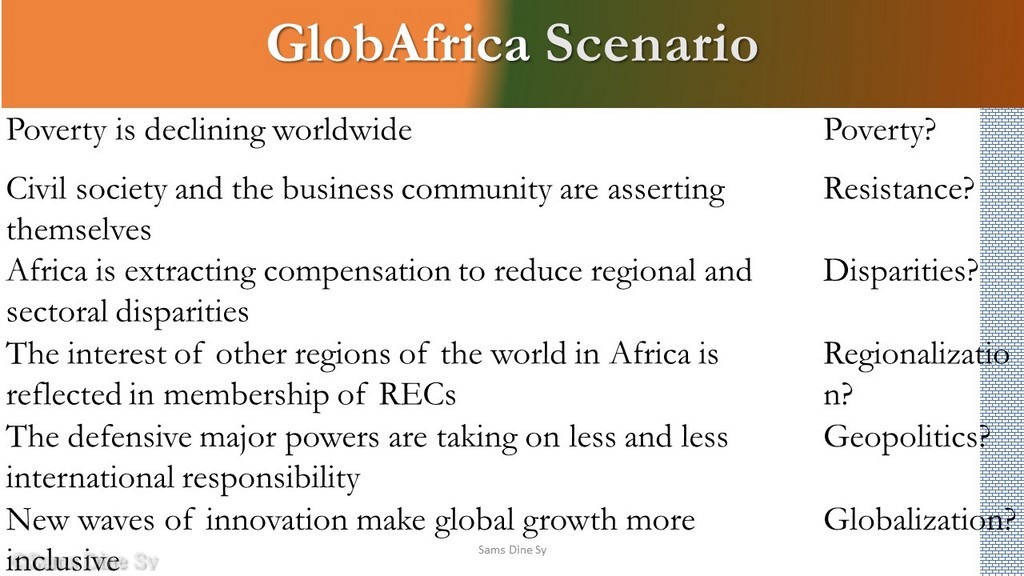
GlobAfrica
Afruption Scenario
The concentration of wealth among a small number of aging and carefree hands leads to the widespread failure of representation systems: the conditions are in place for the world and humanity to become receptive to the common good and Africa's rightful place.
In this scenario, the reduction of poverty and exclusion is significant. The screening of severely affected people has become systematic and the notion of zero poverty has become a leitmotiv. The demographic transition is becoming effective even in countries lagging behind. Migration to other continents is contained in reasonable proportions.
In fact, it is the people who impose on political leaders the need for further regionalisation. Increasingly better organised through pressure groups, political parties, trade unions and religious organisations, they had succeeded in placing the implementation of regional projects on the agenda of governments, failing which they would fall. But the gains are made at the expense of a certain spontaneity and end up being used by lobbies close to the powers that be. The interests at stake are commensurate with the importance Africa is gaining in the world.
Coordination and harmonization efforts result in greater coherence between countries and reduction of disparities between coastal and landlocked areas. Compensation measures are reaching cruising speed to the benefit of countries that are still lagging behind economically. Community infrastructure programmes are implemented under the supervision of the authorities of the African Union. An unprecedented effort of meshing and opening up transforms Africa's soft bellies into an area of attraction and settlement.
The immediate consequence of the loss of influence of bilateral cooperation with the former major powers is the enlargement of Africa by attracting neighbouring regions. The vitality of South-South cooperation makes it possible to envisage a breakthrough of the new Africa as a strategic landscape. Global partnerships are being forged with Asia. This breakthrough is supported by a new climate of cooperation within the G20 that gives a second chance to the global partnership between Africa and the rest of the world. But the main sources of funding are bilateral and multilateral. Several African countries with energy resources are contributing to this, thus driving a new internal dynamic to African integration.
Innovation platforms, regional clusters and other growth triangles help structure spaces covering several regional clusters. To consolidate these economic poles, some countries no longer hesitate to create political axes and even to consider merging them. Regions such as North, Central and Southern Africa are affected by this movement. This new refocusing of the regions around their common concerns is not without difficulties, due to the problems of sharing resources requiring political arbitration.
With the decline of the traditional great powers, the resumption of the globalization process by other regions or cultures makes it possible to envisage a world whose centre of gravity lies elsewhere than in America and Europe, thereby enriching the globalization process. Africa is not left out, even if all eyes are on Asia, especially China and India. These two countries-continents realize all the interest in pulling Africa with them to do counterweight and avoid the reversibility of the process. This new alliance takes the form of a major Partnership Agreement between Africa, West and East Asia and the Indian sub-continent. The northern and western part of Africa thus constitutes the advanced platform of these emerging regions towards Europe and the Americas. The RECs benefit by replicating the Afro-Asian model in the Euro-American and Eurasian spaces. Intercontinental and global infrastructures are emerging in a few decades relegating to oblivion more than four centuries of European presence in Africa.
In fact, it is the people who impose on political leaders the need for further regionalisation. Increasingly better organised through pressure groups, political parties, trade unions and religious organisations, they had succeeded in placing the implementation of regional projects on the agenda of governments, failing which they would fall. But the gains are made at the expense of a certain spontaneity and end up being used by lobbies close to the powers that be. The interests at stake are commensurate with the importance Africa is gaining in the world.
Coordination and harmonization efforts result in greater coherence between countries and reduction of disparities between coastal and landlocked areas. Compensation measures are reaching cruising speed to the benefit of countries that are still lagging behind economically. Community infrastructure programmes are implemented under the supervision of the authorities of the African Union. An unprecedented effort of meshing and opening up transforms Africa's soft bellies into an area of attraction and settlement.
The immediate consequence of the loss of influence of bilateral cooperation with the former major powers is the enlargement of Africa by attracting neighbouring regions. The vitality of South-South cooperation makes it possible to envisage a breakthrough of the new Africa as a strategic landscape. Global partnerships are being forged with Asia. This breakthrough is supported by a new climate of cooperation within the G20 that gives a second chance to the global partnership between Africa and the rest of the world. But the main sources of funding are bilateral and multilateral. Several African countries with energy resources are contributing to this, thus driving a new internal dynamic to African integration.
Innovation platforms, regional clusters and other growth triangles help structure spaces covering several regional clusters. To consolidate these economic poles, some countries no longer hesitate to create political axes and even to consider merging them. Regions such as North, Central and Southern Africa are affected by this movement. This new refocusing of the regions around their common concerns is not without difficulties, due to the problems of sharing resources requiring political arbitration.
With the decline of the traditional great powers, the resumption of the globalization process by other regions or cultures makes it possible to envisage a world whose centre of gravity lies elsewhere than in America and Europe, thereby enriching the globalization process. Africa is not left out, even if all eyes are on Asia, especially China and India. These two countries-continents realize all the interest in pulling Africa with them to do counterweight and avoid the reversibility of the process. This new alliance takes the form of a major Partnership Agreement between Africa, West and East Asia and the Indian sub-continent. The northern and western part of Africa thus constitutes the advanced platform of these emerging regions towards Europe and the Americas. The RECs benefit by replicating the Afro-Asian model in the Euro-American and Eurasian spaces. Intercontinental and global infrastructures are emerging in a few decades relegating to oblivion more than four centuries of European presence in Africa.
